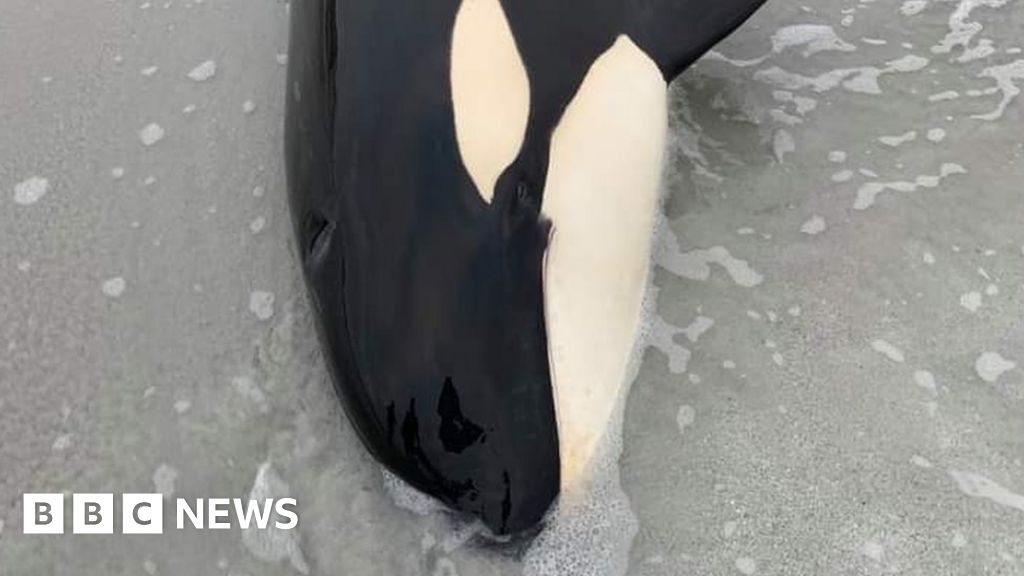Andy Adcock
Worst person on Birdforum


Islanders help rescue orca stranded on Orkney beach
Volunteers led the rescue effort to save the young 11ft-long stranded orca in Orkney.
www.bbc.co.uk





